


As you can see, the answer to the question, “Do programmable thermostats save money?” depends on who is asking, where they live, and how determined they are to save money.
The harder you work air conditioner filters, the faster they wear out.
Curious as to how often you should change your air conditioner filter?
More often that you thought, right? Perhaps. But consider the alternative. Ask yourself, "What happens if I don't change my air conditioner filter regularly?"
Below are six bad things that can happen if you don’t change your air conditioner filter regularly:
Short-Cycling: A dirty air filter can cause your air conditioner to turn off and on, or "cycle," more often than it should. This shortens the life of the compressor and other components in the system.
Freezing Up: A dirty air filter restricts cold air flow. This can cause the cold air to build up inside the air conditioner and can lead to ice forming on the coils or other serious problems.
Uneven Cooling: Restricted airflow also has less staying power against heat from the outside. This can lead to hot spots inside your house that face the sun and other uneven cooling spaces within your home.
Allergen Buildup: Those with allergy or respiratory problems need a clean environment. Your air conditioner filter plays a big role in providing that. Allergens can build up in your duct system and cause repeated allergic reactions.
Wear and Tear: Properly maintained air conditioners last longer with regular maintenance. Neglecting a filter change may cause you to make a costly repair necessary or even to replace your air conditioner a year or two sooner than planned.
Reduced System Efficiency: Causing your air conditioner to run longer and harder to make up for a clogged filter is costing you money on your electricity bill. Air conditioners with dirty filters use much more energy than those that are properly maintained.
Consider replacing your air conditioner filter regularly for far less expense than unexpected costly repairs or early replacement of your air conditioner!
You might want to visit our Air Quality Experts page for more information.
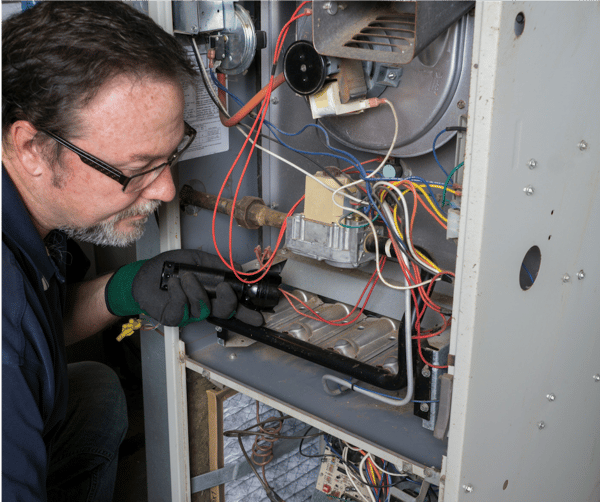
While it’s okay to replace one piece of a furnace or air conditioning system at-a-time, as needed, this can become costly and inefficient as your indoor and outdoor units work together to maximize heating and cooling efficiency.
When the time comes to make the decision to repair or replace your existing system, it is important to look at how much capital you have put into your current system, through repairs and rising energy bills, and determine if replacing it for a newer, more efficient system will be more cost-effective in the long run.
There are, however, several repairs that are just as costly as replacing your whole system. One of the most prominent of these is a cracked heat exchanger. The heat exchanger is a set of coils or tubes that heats the air your system puts out. The heat exchanger can crack due to overheating. If you find yourself in this situation, your best bet is to replace your furnace, as opposed to repairing it.
EnergyStar, a program launched by the United States Environmental Protection Agency, also has a list of guidelines for determining when you need to consider replacing or repairing your system.
The average life expectancy of your furnace and air conditioning system is about 12 to 15 years. If you find your system in need of repairs— or even replacement— despite having performed recommended yearly maintenance, be sure to have a licensed professional evaluate your system to get to the root of the problem. He/she could encounter venting complications, discover your system was installed incorrectly, or even find your system to be the wrong size for your space.
The size of your system should be based on the size of your home. If a system is an improper size for your home, it will fail. For example, a system that is too small won’t get your house as warm or cool as you want because it cannot keep up with the space in which it is working. A large system does not equate to better heating or cooling with a small home; it will only result in overheating the home and frequently turning on and off, short-cycling the system.
If you are unsure whether or not to repair or replace your furnace, or if you even have the right size system in your home, the most important piece of the puzzle is having a licensed professional from a reputable company, who can fully back their warranties, repair your existing or install your new system.
The Weather in Cincinnati and Northern Kentucky can be unpredictable.
If you live Cincinnati or Northern Kentucky, you know the drill. Each year summer arrives with a vengeance. It gets hot and humid outside and it gets hot and humid inside your house, as well. The last thing you want to think about is central air conditioner problems.
You run over to your thermostat and switch it to cool— fully expecting to hear the air conditioner unit  switch on and bring the relief of sweet, refrigerated air wafting through your home.
switch on and bring the relief of sweet, refrigerated air wafting through your home.
You’re not always that lucky, though.
Unfortunately, central air conditioner problems are common. The system is complex and a lot of things can go wrong. Sometimes the unit won’t start up. Or airflow from the ducts is low. Or, there’s plenty of airflow, but the air isn’t cool. Before we tell you how to prevent spring air conditioner problems, let’s go through what can cause them, one-by-one.
8 Common Central Air Conditioner Problems Explained
1. Won’t Start: Tripped Breaker
A breaker is an automatic device that acts as safety precaution to keep overcurrents from damaging your air conditioner or causing a fire. Replacing the breaker will usually correct the issue. However, a tripped breaker can also be the sign of bigger and more dangerous central air conditioner problems.
2. Won’t Start: Contactor Problem
Contactors are switches in outdoor central air conditioner units that must make contact with each other for the unit to run. They sometimes simply fail and need to be replaced. Insects like ants, attracted by the electricity, can keep the contactors from making contact, as well.
3. Poor Airflow: Filters Are Dirty
Dirty filters are one of the most common reasons for central air conditioner problems. In an "average" home, filters must be cleaned or replaced every other month for your unit to operate properly. Dirty filters not only restrict airflow (resulting in inefficient cooling of your home), but can also cause a myriad of additional problems.
4. Poor Airflow: Ducts May Be Leaking
Another reason for poor airflow is leaking ducts. The duct system delivers cool air to the various areas of your home. Low airflow and high electric bills are often signs of leaking ducts. Duct leakage is one of the leading causes of inefficient A/C operation.
5. Warm Airflow: Refrigerant Has Leaked
If the refrigerant in your central air conditioner has leaked, your home won’t cool well and you’ll use much more electricity than necessary. This problem can also cause major damage inside the unit. Refrigerants are dangerous and known to be a greenhouse gas, so must be handled with care.
6. Warm Airflow: Evaporator Coil Is Dirty
The evaporator coil is located inside your home and acts to cool the air being brought in through the ducts. Dirty coils are a common reason for inefficient cooling.
7. Low or Warm Airflow: Condenser Coil May Be Dirty
A condenser coil is located outside the home and when dirty will restrict the cooling power of your air conditioner unit. Again, you’ll spend more on electricity, too.
8. Humid Indoor Air: A Drain May Be Clogged
As your air conditioner cools, it pulls moisture out of the inside air to lower the humidity. Usually this moisture drains out through your home’s plumbing system. But algae often grow inside the drain lines and cause clogging. With nowhere to go, the moisture backs up into your home, keeping the air moist and humid.
Every one of above central air conditioner problems can be avoided by one simple solution: a spring air conditioner tune-up. Specially trained technicians come out to your home and perform a thorough inspection. They look for and repair leaks, clean and/or replace dirty filters, clear clogged drains, clean coils and contactors and check your ductwork for leaks.
If your home is located in Cincinnati, Northern Kentucky, or Southeastern Indiana, before the first heat wave hits, please call The Geiler Company for a spring air conditioner tune-up. We’ll make sure you can count on being cool and comfortable all summer long (and save on your electric bill, too)!
About Us: The Geiler Company has been serving the needs of Cincinnati and Northern Kentucky homeowners for over 130 years. Our longevity is a testament to the high level of service we provide. If you’re not one of our customers yet, we invite you to become one. We would love to make you part of our family.
If you find that one room in your house is cooler than others (and not on purpose), you may have an air duct balancing issue. There are some things you can do on your own to investigate the source of this issue.
First, make sure all your vents are fully open and your furnace filter isn’t dirty.
Second, make sure all windows are completely closed.
Once you’ve eliminated your filter, vents, and windows as the problem, then it’s time to call a professional to look at your HVAC system. They may determine that you have an outdated HVAC and it’s time to replace your unit.
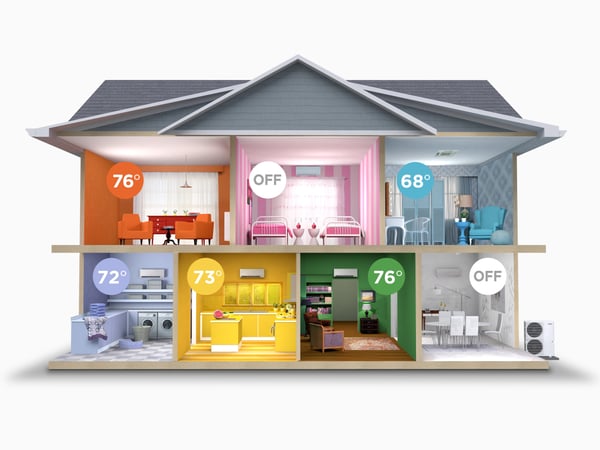
If you need to replace your HVAC system, consider a ductless split system. Ductless systems are different from traditional HVAC systems, in that they use one pump to heat and cool your home. Ductwork is messy and expensive and if you can avoid it, you should.
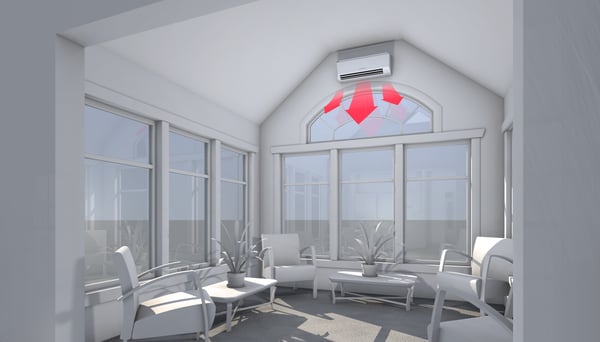
Ductless systems are designed to help you enjoy your home and feel more comfortable in it year-round. For instance, with a traditional HVAC unit, you can’t control if one room in your house is cooler than another, but with a ductless split system you can.

You have the ability to set the temperature for each room or zone in the house. If an area in your home is used less often, you have the option to turn off the system for that room. Split systems are more affordable and energy efficient for this reason. They transfer heat instead of generating it, resulting in 60% less energy used than a traditional HVAC unit.
Leveraging the Mitsubishi technology, our systems at Geiler are 40% more efficient than traditional systems. Our Zoned Comfort Solutions™ will help you re-balance the temperature in your home and put you in control. For those extra cold and drafty rooms, the Instant Hot Start technology will make you feel warm at once. To find out more about how we can help you with your heating and cooling needs, give us a call!
One of the problems you face when looking to install air conditioning in your attic is the lack of duct work.
It is very expensive and messy to tear out walls and add duct work in order to connect to your current AC system. There is a cost-effective and simple option to provide air conditioning to your attic without the cost and hassle of installing ductwork. It is called a split system. A split system is exactly what it sounds like; there is an outdoor and an indoor unit. This eliminates the need to tear down walls to install ductwork.
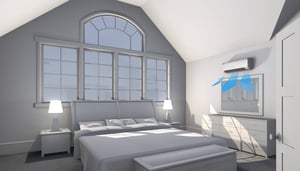
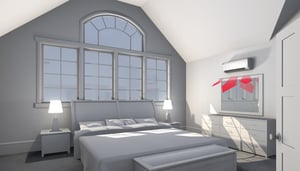 These ductless systems can also provide heat in the winter!
These ductless systems can also provide heat in the winter!
While this is a convenient solution to providing cooling and heating to attics and other rooms, are these systems cost-effective?
Unlike window air conditioner units, these ductless AC systems can cool and heat your attic.
No ductwork needed. Only a small opening is needed to connect the indoor and outdoor units to complete the split system installation.
Conventional cooling and heating systems turn on and off, wasting energy. The technology in modern split system units uses the exact amount of energy needed to cool or heat an area without turning on or off, thus making split system units up to 40% more efficient than traditional systems.
The wall-mounted attic AC unit shown in the pictures above can maintain the ideal temperature you set; whether heating or cooling your attic space.
 No Ducts, No Noise
No Ducts, No NoiseDuctless solutions systems deliver cooled and heated air directly to the rooms they serve, without the need for noisy fans.
 No ON and OFF noise
No ON and OFF noiseYou never have to hear the disruptive clanging of a central air system turning on and off again. With these systems, that noise is a thing of the past.
Learn more on our Split Systems Heating and Cooling Page.
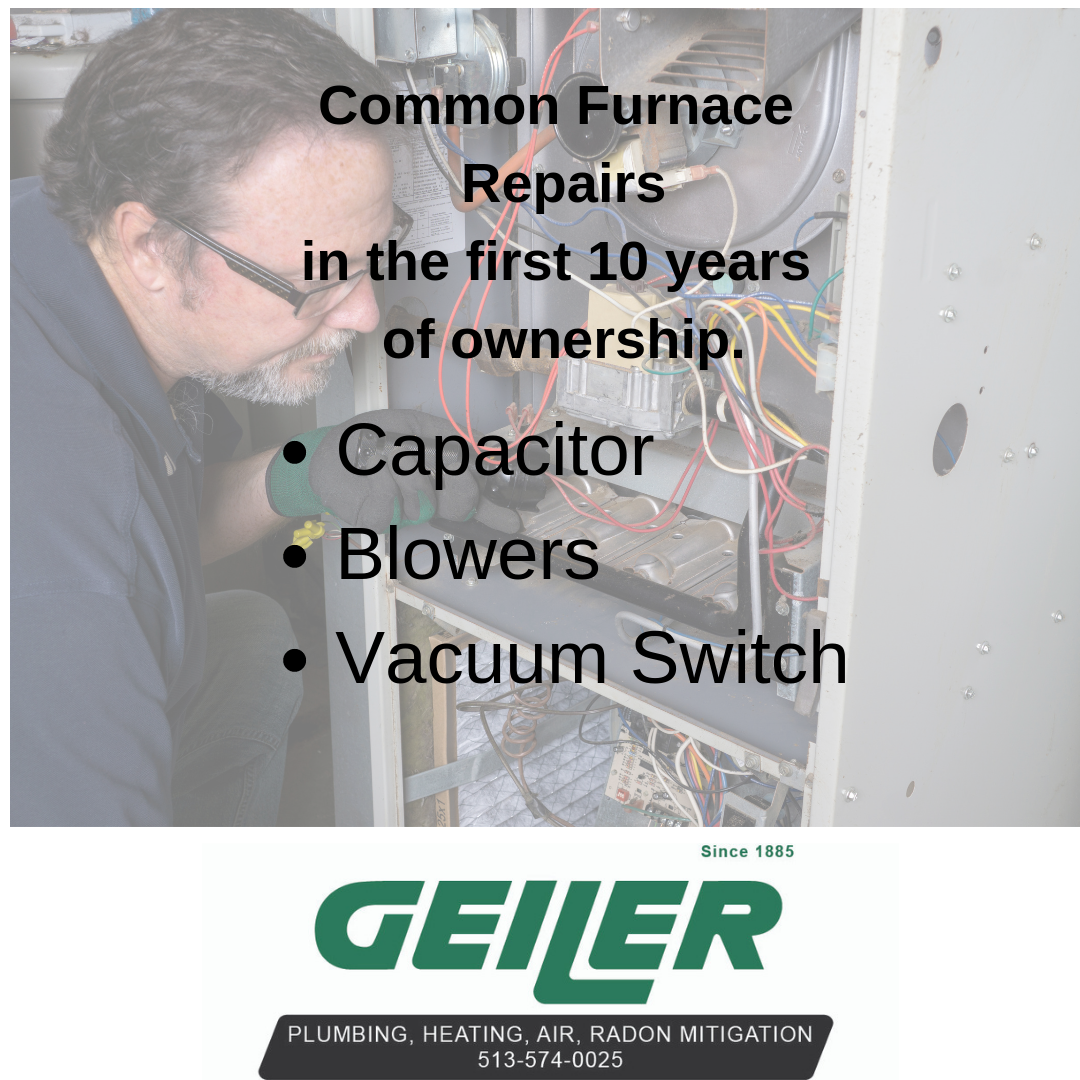
This is a fantastic company. Customer service is superior. They do the job right the first time.

Samuel Thacker
Called just before holiday weekend. No rush needed. They called me back Monday and set time for Tuesday. Technician was on time, professional, answered questions and didn't try to upsell. Completed work timely and all is good again.

Mike Giordano